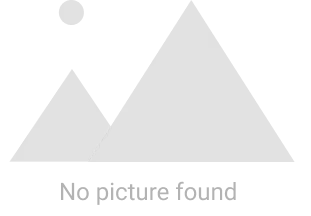The Black Riders and Other Lines
by
Stephen Crane

I
Black Riders came from the sea.
There was clang and clang of spear and shield,
And clash and clash of hoof and heel,
Wild shouts and the wave of hair
In the rush upon the wind:
Thus the ride of Sin.
II
Three little birds in a row
Sat musing.
A man passed near that place.
Then did the little birds nudge each other.
They said, “He thinks he can sing.”
They threw back their heads to laugh,
With quaint countenances
They regarded him.
They were very curious,
Those three little birds in a row.
III
In the desert
I saw a creature, naked, bestial,
Who, squatting upon the ground,
Held his heart in his hands,
And ate of it.
I said, “Is it good, friend?”
“It is bitter — bitter,” he answered;
“But I like it
Because it is bitter,
And because it is my heart.”
IV
Yes, I have a thousand tongues,
And nine and ninety-nine lie.
Though I strive to use the one,
It will make no melody at my will,
But is dead in my mouth.
V
Once there came a man
Who said,
“Range me all men of the world in rows.”
And instantly
There was terrific clamor among the people
Against being ranged in rows.
There was a loud quarrel, world-wide.
It endured for ages;
And blood was shed
By those who would not stand in rows,
And by those who pined to stand in rows,
Eventually, the man went to death, weeping.
And those who staid in bloody scuffle
Knew not the great simplicity.
VI
God fashioned the ship of the world carefully
With the infinite skill of an All-Master
Made He the hull and the sails,
Held He the rudder
Ready for adjustment.
Erect stood He, scanning his work proudly.
Then — at fateful time — a Wrong called,
And God turned, heeding.
Lo, the ship, at this opportunity, slipped slyly,
Making cunning noiseless travel down the ways.
So that, forever rudderless, it went upon the seas
Going ridiculous voyages,
Making quaint progress,
Turning as with serious purpose
Before stupid winds.
And there were many in the sky
Who laughed at this thing.
VII
Mystic Shadow, bending near me,
Who art thou?
Whence come ye?
And — tell me — is it fair
Or is the truth bitter as eaten fire?
Tell me!
Fear not that I should quaver,
For I dare — I dare.
Then, tell me!
VIII
I looked here;
I looked there;
Nowhere could I see my love.
And — this time —
She was in my heart.
Truly, then, I have no complaint,
For though she be fair and fairer,
She is none so fair as she
In my heart.
IX
I stood upon a high place,
And saw, below, many devils
Running, leaping,
And carousing in sin.
One looked up, grinning,
And said, “Comrade! Brother!”
X
Should the wide world roll away,
Leaving black terror,
Limitless night,
Nor God, nor man, nor place to stand
Would be to me essential,
If thou and thy white arms were there,
And the fall to doom a long way.
XI
In a lonely place,
I encountered a sage
Who sat, all still,
Regarding a newspaper.
He accosted me:
“Sir, what is this?”
Then I saw that I was greater,
Aye, greater than this sage.
I answered him at once,
“Old, old man, it is the wisdom of the age.”
The sage looked upon me with admiration.
XII
“and the sins of the fathers shall be
visited upon the heads of the children,
even unto the third and fourth
generation of them that hate me.”
Well, then, I hate thee, Unrighteous Picture;
Wicked Image, I hate thee;
So, strike with thy vengeance
The heads of those little men
Who come blindly.
It will be a brave thing.
XIII
If there is a witness to my little life,
To my tiny throes and struggles,
He sees a fool;
And it is not fine for gods to menace fools.
XIV
There was crimson clash of war.
Lands turned black and bare;
Women wept;
Babes ran, wondering.
There came one who understood not these things.
He said, “Why is this?”
Whereupon a million strove to answer him.
There was such intricate clamor of tongues,
That still the reason was not.
XV
“Tell brave deeds of war.”
Then they recounted tales, —
“There were stern stands
“And bitter runs for glory.”
Ah, I think there were braver deeds.
XVI
Charity, thou art a lie,
A toy of women,
A pleasure of certain men.
In the presence of justice,
Lo, the walls of the temple
Are visible
Through thy form of sudden shadows.
XVII
There were many who went in huddled procession,
They knew not whither;
But, at any rate, success or calamity
Would attend all in equality.
There was one who sought a new road.
He went into direful thickets,
And ultimately he died thus, alone;
But they said he had courage.



